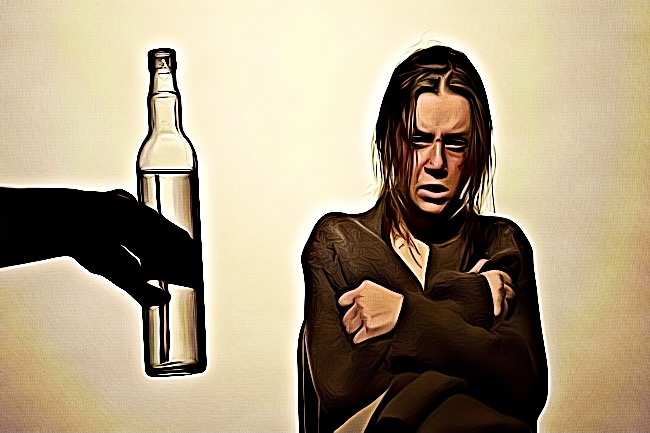A Trembling Effect: All of the Basics about Alcohol Shakes
It can be common for alcohol withdrawal to produce tremors, which are usually harmless and go away on their own. However, it is essential to know what causes alcohol shakes and when you should seek medical help.
What Causes Alcohol Shakes?
Alcohol shakes are caused by the body’s reaction to alcohol withdrawal, including alcohol tremors, rapid breathing, palpitations, and a racing heart rate. These symptoms are caused by the body’s attempts to re-balance itself after being deprived of alcohol. It tries to go through the notions through a variety of methods, including the release of stress hormones, which can then cause alcohol shakes.
Can I Prevent Alcohol Shakes?
Alcohol tremors can be prevented in a variety of ways. The most obvious way to avoid alcohol shakes is to not drink alcohol at all, which should also prevent the symptoms of alcohol withdrawal. If a person is already experiencing the shakes, then reassuring them that the symptoms will pass and staying close to them may help.
How Long Do Alcohol Shakes Last For?
Alcohol shakes usually last for about a day or two but can be induced by alcohol withdrawal for up to 7 days after consumption has stopped. Take note that this may vary, depending on the severity of the person’s drinking habits.
How Long Does It Take For Alcohol Shakes to Go Away?
Alcohol tremors usually last from 10 to 48 hours after the last drink was consumed but can last longer if the individual has had a history of alcohol abuse.
Do Alcohol Shakes Have Other Symptoms?
Alcohol tremors can be accompanied by a variety of symptoms, including nausea, trouble concentrating, and panic attacks, in the early stages of alcohol withdrawal.

What Are the Complications of Alcohol Shakes?
Alcohol withdrawal can be life-threatening if not treated properly. The most dangerous and intense complications include seizures, delirium tremens, and hallucinations. Delirium tremens are the most severe form of alcohol withdrawal and can be fatal if left untreated. Hallucinations, meanwhile, can be visual, auditory, or tactile and can be very frightening to the individual experiencing them.
How Serious Are Alcohol Shakes?
Alcohol tremors are not usually severe but can signify more serious complications. Seizures, for example, are very serious and can be caused by not only alcohol but also a variety of other substances.
What Are the Treatment Options for Alcohol Shakes?
If an individual is experiencing alcohol shakes, then it is vital to seek medical attention immediately. The primary treatment for it is a drug called clomethiazole, which is taken orally or injected. In some cases, it is recommended that a patient be hospitalized for alcohol withdrawal.
What Are the Dangers of Long-Term Alcohol Use?
Long-term alcohol use can interfere with the body’s homeostasis, which can have a variety of adverse effects on the body. Alcohol is an excitotoxin, which means that the brain is overstimulated by it, which can cause damage to the brain’s mitochondria. Brain damage can occur in any person who abuses alcohol but is more likely to occur in those who abuse it over a long period of time.
Long-term alcohol use also has negative effects on the organs. Alcohol consumption can damage the liver, kidneys, pancreas, and gastrointestinal tract. Alcohol consumption can also lead to heart disease, blood vessel damage, and strokes.
Many people who abuse alcohol also suffer from depression or anxiety. Alcohol dampens the brain’s functioning, leading to depression or anxiety in some individuals. People who use alcohol often also suffer from memory issues.
Some of the most common social issues stemming from it include divorce and family problems. Alcohol can also cause behavioral issues, including increased accidents while driving.
How Serious Are the Long-Term Effects of Alcohol Use?
Long-term alcohol use can lead to physical and mental health issues. Alcohol withdrawal is the most common physical issue caused by alcohol use, with symptoms including tremors and depression.
What Is Alcohol Withdrawal?
The first step to knowing what causes alcohol shakes is to understand what alcohol withdrawal is.
It happens when the body, used to the effects of alcohol, is suddenly deprived of the substance. This can cause various physical and mental symptoms, including intense depression and anxiety, which are the most common symptoms.
The Four Stages of Alcohol Withdrawal
There are four stages to alcohol withdrawal. The first stage is the mildest and includes minor symptoms such as anxiety, irritability, trouble sleeping, and nausea. The second stage of alcohol withdrawal is where shaking symptoms are most likely to occur. Confusion, hallucinations, a racing heart rate, and rapid breathing are all common symptoms.
The third stage of alcohol withdrawal is the most intense. This withdrawal stage is characterized by intense tremors, convulsions, and possibly even a seizure. The final stage of alcohol withdrawal is the end of the physical symptoms, including hallucinations and mood swings.
How Can I Stop Alcohol Withdrawal?
There are ways to stop alcohol withdrawal, including the use of drugs such as clomethiazole to regulate the body’s system. It is important to discuss your symptoms with a medical professional to determine the best treatment for your symptoms.
Do People With Alcohol Withdrawal Have Alcoholic Hallucinations?
Yes. Alcohol withdrawal can be a life-threatening condition characterized by several symptoms, including hallucinations. During alcohol withdrawal, the brain attempts to regulate itself after being deprived of the drink, leading to hallucinations.
How Do I Get Help for Alcohol Withdrawal?
If you believe that you have symptoms of alcohol withdrawal, then it is important to seek medical attention immediately. The most effective way to recover from alcohol withdrawal is to avoid alcohol completely and seek medical attention.
What Are the Treatments for Alcohol Withdrawal?
When it comes to recovering from alcohol withdrawal, the most effective treatment is to simply stop drinking. Most people who stop drinking also reduce or eliminate their other alcohol-related symptoms. People who are in severe stages of withdrawal may need to be hospitalized.
Can Alcohol Shakes Be Prevented?
Alcohol tremors can be prevented in a variety of ways. The most obvious way is to not drink alcohol anymore. If a person is already experiencing alcohol shakes, then reassuring them that the symptoms will pass and staying close to them may help.
How Can I Help Someone With Alcohol Shakes?
Alcohol tremors can be frightening for the individual experiencing them, especially since they don’t know what is causing them. It is important to stay calm and reassure the individual experiencing it, which will help them feel better in the long run.
Can I Recover from Alcohol Shakes?
Alcohol tremors can be a life-threatening sign of alcohol withdrawal, so it is important to seek medical attention immediately. The most effective way to recover from alcohol tremors is to seek help and medical attention at the first sign of trouble.
Conclusion
Overall, alcohol withdrawal is a serious condition characterized by a number of symptoms, including alcohol tremors. Alcohol tremors are usually a sign that a person is experiencing an earlier form of withdrawal. If you or a loved one is experiencing them, then it is important to seek medical attention immediately.
Take note of all our valuable information about the condition and the alcohol shakes that come after to better understand how risky it may be towards a person’s health.

